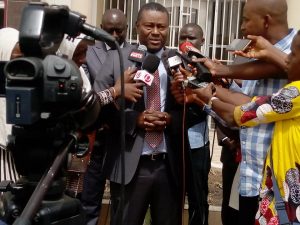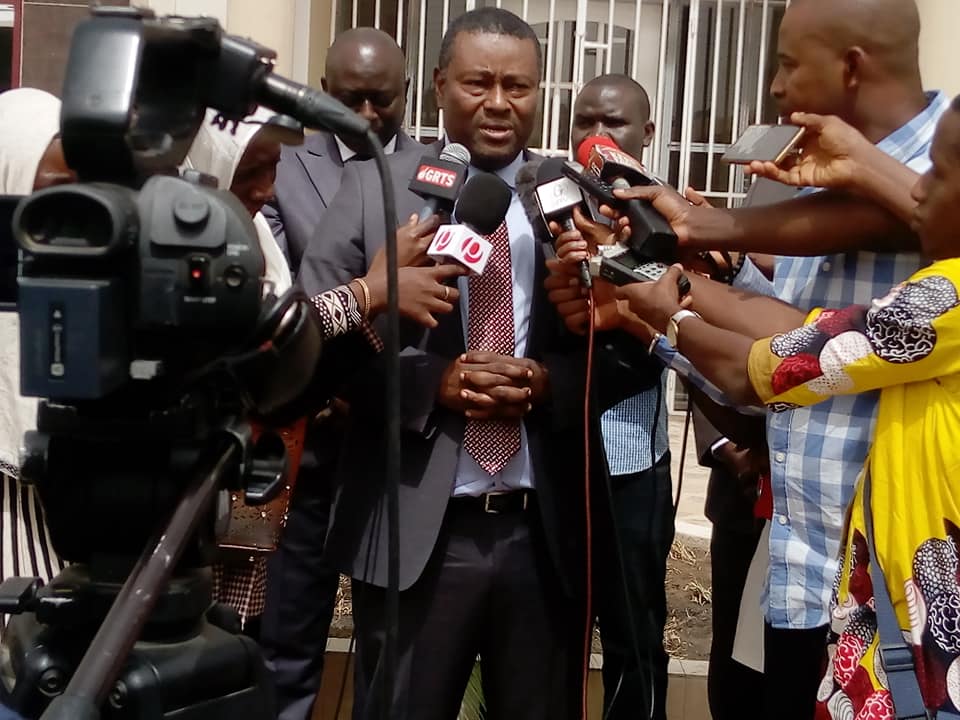 Reposting: The Challenges and Dilemma of the Gambia Human Rights Commission:
Reposting: The Challenges and Dilemma of the Gambia Human Rights Commission:
Relationship Between Religion, Morality, Ethics, and Law Theorizing LGBT As Human Rights in The Gambia.
by Alagi Yorro Jallow.
Mamudu: The current debate on homosexuality in the Gambia is extremely vexing because it is an exhibition of deep subterfuge in our society today. Moreover, our collective dishonesty is impressive. Blind homophobia does not help. It is time for Gambians to look at the mirror.
Mamudu: Despite the Gambia government’s official policy not to decriminalize or to abolish draconian provisions in the anti-LGBT legislation being passed by the predecessor government of President Yahya Jammeh, according to an official statement to the United Nations Human Rights Council is contradictory and hypocritical. The Penal Code that criminalizes gay sex mainly falls into a bundle of legislation that requires to be updated to keep pace with modernity. The Constitution prohibits all forms of discrimination. Former President Yahya Jammeh said homosexuality is anti-god, anti-human, and anti-civilization. He called homosexuals vermins and threatened to slit their throat. “Same-sex relations remained criminalized. A law approved in October 2014, for example, imposed sentences of up to life imprisonment for “aggravated homosexuality” offenses.
Mamudu: The Gambia remains a deeply conservative country. For example, in the Upper River Region, in addition to villages like Fass Ngaja Choi, Medina Sering Mass, Bakendik village, Medina Sotokoi in Niumi, as well as in Kuntaya village in Jokadu they will never entertain gay marriage or openly gay sex. Despite what the Constitution tells, persons who are caught engaging in gay sex will either be subjected to public ridicule, arrested, or beaten up.
The Gambia’s National Assembly too is deeply conservative. NAMs rarely debate or pass legislation on emotive subjects. LGBT rights define the contemporary human rights debate. Globally, the law is being tampered with to accommodate the concerns of the minority. However, in the Gambia, the debate has never picked up. We only hear discussions in seminars and meetings. The debate has not transcended beyond these confines.
Mamudu: From a juridical perspective, the legal precedence will evoke memories of the great Lord Patrick Devlin/Prof. H.LA. Hart debate on law and morality. Lord Devlin famously argued that popular morality should be allowed to influence lawmaking and that private acts should be subject to legal sanction if they were held to be morally unacceptable by the reasonable man to preserve the moral fabric of society. Prof. H.L.A Hart fiercely disagreed. Borrowing from the philosophical reasoning of English philosopher John Stuart Mill, he forcefully argued that law has no business interfering with private acts that harm nobody. We need to pick up this debate and contextualize it within the Gambia. Scholars should take the lead. Universities should convene public debates on law and morality. The National Assembly should not be afraid to discuss the subject of LGBT.
Mamudu: It appears that the Gambia is a society built mainly on deception. It is this deception that facilitates the corruption of morals, of persons and government. If we are unable to face up to issues, we choose to sweep things under the carpet. So, there is the relatively sane Gambia that we portray publicly, and then there is the other Gambia that is under the carpet. The duplicity of morals. On the gay and lesbian issue, in public, some pundits write things like “this is disgusting and un-African and not a critical issue for discussion.” Under the carpet, we have a vibrant openly LGBT community, including male and female sex workers plying their trade on streets of Greater Banjul Area, and around the Tourist Development Area under the nose of the Police.
Mamudu: Under the carpet, the law has not expressly criminalized homosexuality. The law only places criminal sanctions on “homosexual acts.” A publicly gay person cannot be arrested, save for when they are caught in the “act.” We are currently facing the prospect of the courts repealing sections of the Penal Code that criminalize sexual acts against the order of nature. Evidence has shown that a number of those who are loudest with anti-gay sloganeering are the very clients of these men and women, for they would not be on the streets if they are not making money. Members of the LGBT community are not from the moon. They are sons, daughters, sisters, brothers, friends of the same Gambians, including politicians, religious leaders, hiding under “religion” and “culture” to create a very unproductive culture of homophobia, which does not allow people to discuss genuine issues openly.
Mamudu: Former President Yahya Jammeh tried legislation, murder, and brute force, but that did not remove the LGBT community from the country. Singapore, a nation known for strict application of the law, has been unable to contain homosexuality using the law. The legal regime criminalizes it, but in practice, the Singaporean government has simply turned a blind eye, although the law and occasional government action restricts the expression of LGBT rights. Even in places with strict sharia law, like Pakistan, for example, these minorities exist. Matters of morality and acts done in private are extremely difficult to Police and prosecute. Moreover, even in cases where prosecution succeeds, it merely does not reduce that which is considered “immoral.” The same African politicians vehemently opposed to LGBT communities are already acknowledging that they are a critical minority and already designing and executing sexual healthcare and HIV prevention programs targeted at them.
Mamudu: As a straight African liberal male who thinks that we are not dealing with issues, but instead choosing the cover and convenience of “morality,” “religion” and “culture” to mask what is truly happening in our society. I often ask those who engage in the LGBT debate from an abstract point of view this question: What if your son came home today and told you he was gay? Would you pick a shotgun to shoot him dead? If your sister returned home lesbian, would you dig a six-foot grave and bury her? There are genuine issues that a section of Gambian families confronts daily. A conflict between traditional values and emerging contemporary values that many times are the opposite of our social conditioning. The reality is that societal norms and values are changing. Running away from that fact would be an exercise in foolishness. The question should be, for the majority inclined at maintaining traditional family values, how do we deal with the challenges posed by the changes brought about by today’s liberal world? These are complex issues that we need to discuss openly.
Mamudu: The argument that the West is “imposing” values on Africans is mute. I consider it an insult. Muslims do not eat pork, not because someone told them not to, but because of deep religious conviction. Equally, they will not start eating pork because Americans are slaughtering pigs and exporting bacon. Who says that Africans are automatons?
Mamudu: Why do Africans portray themselves as behavioral robots of the West? If we cherish and believe in our so-called “culture” and “religion(s),” why are we unable to resist values which we consider un-African or which go against values we claim to “hold dear”? Why do we blame third parties for individual choices sections of our society makes? Are we then to assume that we are in the first place morally bankrupt and thus our ready tendency to hide behind “religion” and “culture” and the argument that “third parties” are “imposing” things on us when faced with moral dilemmas? When did Africans throw away their right to choose?

